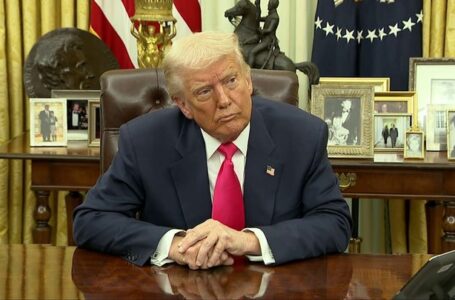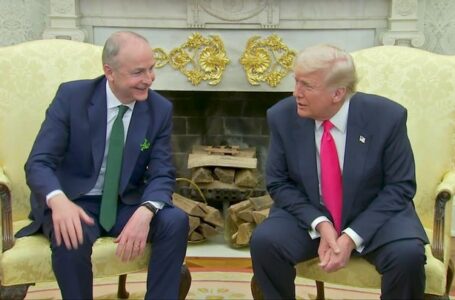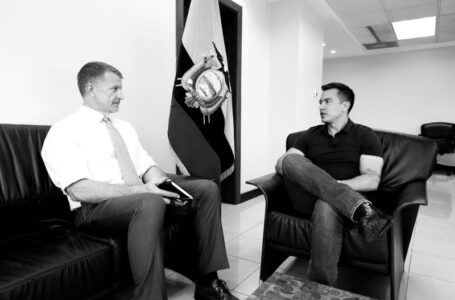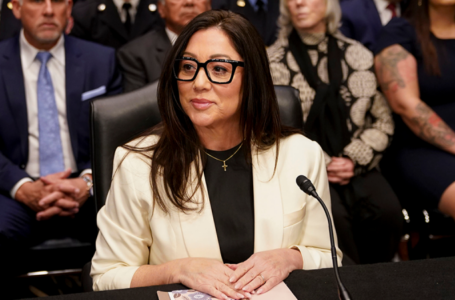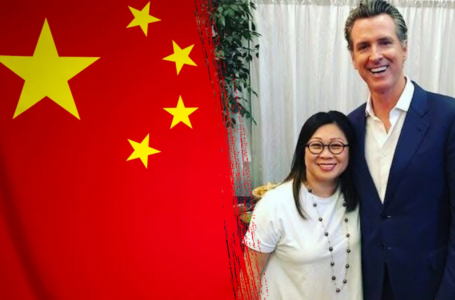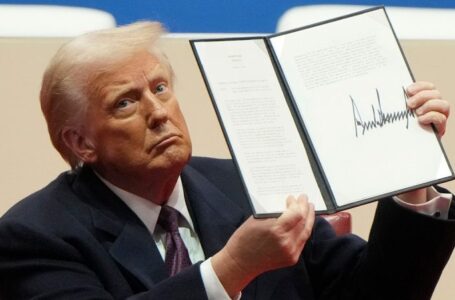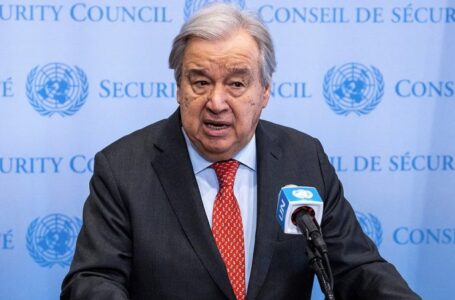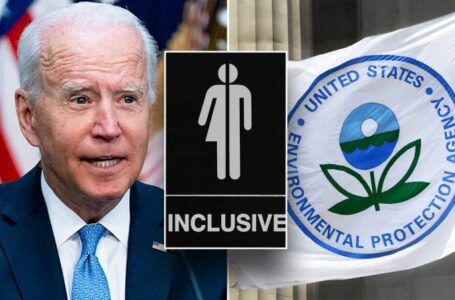4 takeaways from Trump’s dueling court hearings
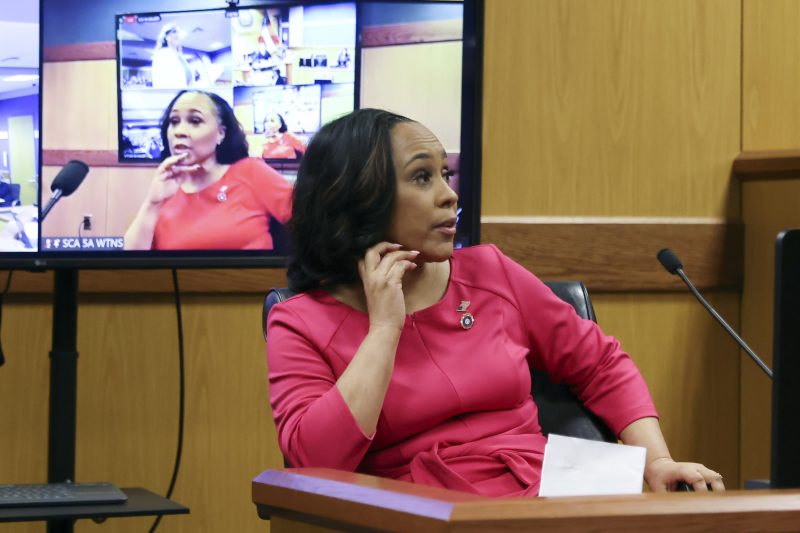

We got a taste Thursday of what former president Donald Trump’s jam-packed legal schedule could look like in the coming months, with a split-screen of key hearings in Trump’s Georgia and New York criminal cases playing out.
In Georgia, Fulton County District Attorney Fani Willis testified in a hearing about whether she can be disqualified from her election-subversion prosecution of Trump. In New York, a hearing got the ball rolling on the hush-money trial that is set to begin next month.
Below are some takeaways from the dueling courtroom scenes.
While not surprising, the most definitive news Thursday was confirmation that a former president will, for the first time in history, go on trial facing criminal charges next month — and that he’ll do so during his campaign for a second term.
In the 2016 hush-money case, New York state Supreme Court Justice Juan Merchan turned aside requests from Trump’s legal team to delay the March 25 start of the trial. Merchan reiterated that it is a “date certain.”
The news is significant because the timing of Trump’s three other criminal trials remain uncertain, with one or more potentially landing after the 2024 election, depending upon Trump’s ability to delay them, or even being derailed altogether.
The judge has estimated the trial would take about six weeks, meaning we could have a verdict in Trump’s first criminal trial by early May.
(Some of this is subject to change if Trump’s federal election-subversion trial can be scheduled — and if New York would defer. The federal trial was initially scheduled for next month but is in flux due to a dispute over presidential immunity, which could go to the Supreme Court.)
While Trump critics might rejoice that he will face at least some criminal accountability this year, the New York case is generally regarded as being the lowest-profile — and perhaps the weakest — of the four.
Thursday was not a great day for the Fulton County prosecution or for Willis, whose testimony quickly turned combative.
Whether that means she’ll actually be disqualified from the case and/or the case will be sidetracked is another question entirely. The judge has yet to rule on that, with hours left of the hearing set for Friday.
The crux of the hearing is whether Willis improperly benefited from a personal romantic relationship with the prosecutor, Nathan Wade, whom she hired to lead the case. The two key issues were whether Wade’s and Willis’s relationship predated his hiring, and whether she financially benefited from hiring him because he paid for their vacations.
In the first dispute, Willis’s estranged friend and former colleague Robin Bryan-Yeartie contradicted a sworn affidavit from Wade that Willis’s team filed earlier this month. Wade had said his relationship with Willis began in 2022 — after Willis hired him in late 2021 — but Bryan-Yeartie testified that it actually began in late 2019. Wade doubled down in his own later testimony, placing the start of the romantic relationship in March 2022. Willis put it around April 2022.
In the second dispute, Wade and Willis testified that while he initially paid for the vacations, she repaid him in cash for about half the cost of the trips — an assertion that, if true, would undercut the idea that his hiring benefited her. Defense lawyers sought to cast doubt on that explanation, pressing Wade and Willis on the lack of documentation for the cash reimbursements and casting the thousands of dollars involved as large sums of cash to be holding. Willis said she keeps significant sums of cash on hand, citing advice she once received from her father.
Related to the above disputes, defense lawyers also sought to cast Wade’s candor into question and argue that he and Willis hid their relationship. They pointed to filings from Wade’s recently concluded divorce proceedings in which Wade said he didn’t have “sexual relationships” with a person besides his wife during their marriage or period of separation.
One such filing was made in May 2023, after Wade acknowledges his romantic relationship with Willis began and they had a sexual relationship. Wade later amended these forms, declining to answer the question by citing privacy protections in Georgia law.
Wade cast his marriage as having effectively ended in 2015 — that he and his wife stayed together for years for their young children — and thus argued his relationship with Willis didn’t constitute an affair. But defense lawyers emphasized that the question he had answered in the earlier filing included the period of separation.
Willis’s relationship with a prosecutor would seem to raise questions about her judgment. And defense lawyers got traction in casting doubt on Wade’s honesty about the relationship.
It’s a public relations problem, at the very least. That’s especially given Willis was previously disqualified from investigating a politician in a related case after holding a fundraiser for his campaign opponent. (“It’s a ‘What are you thinking?’ moment,” the judge in that case said in July 2022. “The optics are horrific.”)
But when it comes to Willis’s ability to continue the prosecution, the burden is on the defense team to prove Willis personally benefited from hiring Wade and that it is disqualifying, which proved more of a struggle Thursday.
Were Willis removed, a state council that oversees prosecutors could select a replacement. But that process could take a while.
Willis’s display was a sight to behold. After Wade delivered brief answers during his testimony, she gave long answers that went after her critics, tried to reframe the questions she faced, and offered asides that made clear her disgust.
She said early on that she was “surprised” the hearing was allowed to continue, citing the “lies” that were being told. She told a defense lawyer “don’t be cute with me” and repeatedly urged one who spoke loudly to stop “yelling” at her. When one pointed to her allegedly reimbursing Wade even when she faced a tax lien, she said, “Are you going to tell me how I’m going to pay my bills?” She added, defiantly: “I went shopping too when I didn’t pay it off.”
On the one hand, it signaled someone who clearly wasn’t prepared to back down and seemed to be girding for the fights that await. On the other, it showed how Trump and his co-defendants — perhaps more than ever before, and after lots of trying — had succeeded in making a prosecutor the issue, with an assist from Willis and Wade.
So many of Trump’s tactics in these cases should be viewed as gamesmanship. By casting these prosecutions as political witch hunts and attacking judicial officers and others, he wants to insulate himself politically even from adverse verdicts and make his critics regret going after him.
On Thursday, that tactic at the very least succeeded in putting a prosecutor under the microscope.
“You think I’m on trial,” Willis told a defense lawyer at one point. “These people are on trial for trying to steal an election in 2020.”
She added: “I’m not on trial, no matter how hard you try to put me on trial.”
Any trial that involves Trump is bound to turn into a spectacle. And Thursday indicated that won’t just be the case in his appearances outside the courthouse.
The New York hearing, which Trump attended, featured some scenes in which Trump’s defense lawyer took a page out of his book.
In once instance, Trump lawyer Todd Blanche complained, “President Trump is going to now spend the next two months working on this trial instead of out on the campaign trail,” adding that it “is something that should not happen in this country.”
Merchan asked him what his actual legal argument was, to which Blanche replied, “That is my legal argument.”
“That is not a legal argument,” Merchan responded.
Blanche also claimed it was “completely election interference” for Trump to stand trial. And when prosecutors said they wanted to ask potential jurors whether they believe the 2020 election was stolen, Blanche responded that “over half the population of this country believes the election was stolen.” This is not true. (A majority of Republicans believe that.)
The display echoed some of the scenes from Trump’s civil trials, in which Trump’s lawyers sometimes sounded like they were channeling their boss and making a campaign case rather than a legal one.
In those cases, of course, it was Trump’s money and business that were at stake. Thursday suggested the approach will linger even with his freedom at stake.

